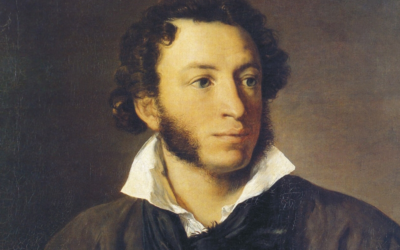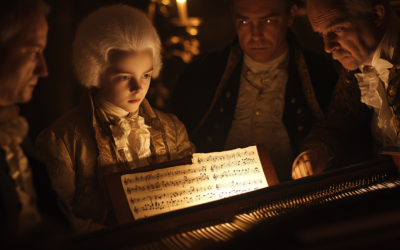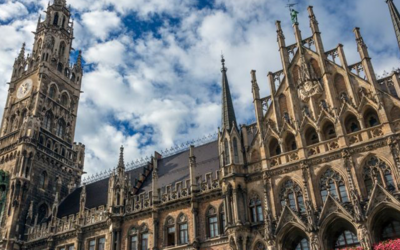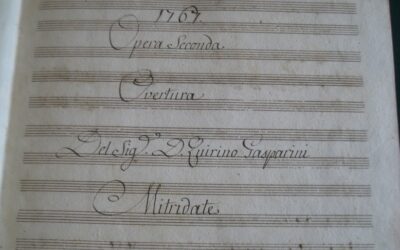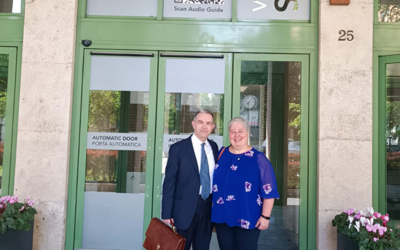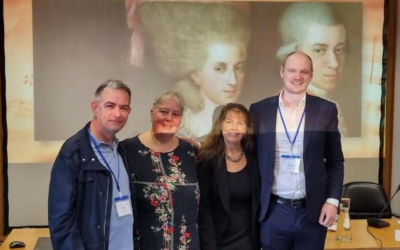Leopold Mozart
The Myth of Mozart: A Closer Look at the Man Behind the Legend
A critical examination of Wolfgang Amadeus Mozart’s life reveals a man shaped more by his father’s ambitions than by innate genius. Stripped of the myths, Mozart’s early years reflect a childhood dominated by relentless touring, inconsistent education, and a legacy built on exaggerated achievements. Discover the real story behind the legend.
“It wasn’t like that, because Leopold chose to rush his children’s development, making them perform immediately as circus attractions, dragged from place to place, even at the risk of their lives, just to astonish an audience that was generally incompetent and merely seeking entertainment”
Mozart in Italy
Wolfgang Amadeus Mozart is often celebrated as a musical prodigy and a genius whose talents were unparalleled. However, the reality of his life, as revealed through a more critical examination, suggests a different story. Born into a family where his father, Leopold, had grand ambitions, Mozart’s early years were shaped more by his father’s aspirations than by his own natural genius.
From the moment Wolfgang was born, Leopold saw in him an opportunity to fulfil his own dreams of fame and recognition. Leopold’s goal was not just to nurture his son’s musical talents but to create a spectacle that could be paraded across Europe, showcasing Wolfgang and his sister Nannerl as prodigies. The family’s relentless touring and performances were not so much about artistic growth as they were about satisfying Leopold’s desires for status and success.
Contrary to popular belief, Wolfgang’s early musical education was far from comprehensive. While he was encouraged to improvise and perform, his formal training was inconsistent, and much of what is attributed to his early compositions may have been heavily influenced or even entirely crafted by his father. The legendary “compositional notebooks” purportedly filled with young Wolfgang’s works were, in fact, mostly exercises and simple pieces, many of which were written or arranged by Leopold himself.
Leopold’s ambition extended to the fabrication of documents and stories that exaggerated Wolfgang’s early achievements. The so-called “composition book” gifted to Wolfgang for his seventh name day was later revealed to be a fraud, created long after the fact to embellish the narrative of Mozart’s childhood brilliance. These myths were further propagated by early biographers who relied heavily on Leopold’s embellished accounts, rather than on verifiable facts.
The truth is that Wolfgang was a talented child, but he was also a product of his father’s relentless ambition. Instead of allowing him to develop naturally, Leopold thrust Wolfgang into the limelight, often at the expense of his education and well-being. This aggressive pursuit of fame created a legend, but it also obscured the reality of who Mozart truly was.
You May Also Like
Mozart and Salieri
Pushkin does not see Salieri as a mere mediocre. In fact, Salieri embodies the struggle of the artist, much like Michelangelo, who reaches greatness through relentless effort. Pushkin himself identifies with both Mozart and Salieri, but he emphasises that true art demands work, discipline, and sacrifice. In poisoning the Mozartian element within himself, Salieri performs a service to art, freeing it from the frivolity of effortless genius. ‘Can genius and malice coexist?’ Pushkin’s answer is complex, but in the end, Salieri’s act seems to affirm that true creation lies in the hands of those who strive.
The Fabrication of Genius
Leopold Mozart’s tireless efforts to promote his son Wolfgang as a child prodigy were rooted in manipulation, exaggeration, and a relentless drive for social success. Far from being a miraculous genius, Wolfgang was pushed into the spotlight by his father, whose grandiose claims often obscured the reality of his son’s abilities.
The Return of Gatti’s Aria
In the magnificent Max Joseph Hall of the Residenz München, tenor Daniel Behle performed the aria “Puoi vantar le tue ritorte” by Luigi Gatti, taken from his opera Nitteti. This concertante piece, for which we composed the cadenzas, was brought to life by the Salzburger Hofmusik orchestra under the direction of Wolfgang Brunner.
Quirino Gasparini’s Music Performed for the First Time
For the first time in modern history, Quirino Gasparini’s music has been performed. This concert, featuring arias from Mitridate and Beethoven’s Seventh Symphony, was conducted by Maestro Leonardo Muzii, with soprano Anastasiia Petrova.
Teaching Mozart at Bocconi University
We delivered a four-hour lecture on Mozart at Bocconi University, showcasing unpublished music by Gasparini, Gatti, and Tozzi while comparing textual and musical treatment with Mozart’s works. Unseen variants from Le Nozze di Figaro were also revealed.
New Revelations About Mozart at the Évora Forensic Conference
At the Évora Forensic Conference, new research confirmed that both Mozart’s personal catalogue and the signatures on his violin concertos are forgeries, challenging long-held beliefs.


